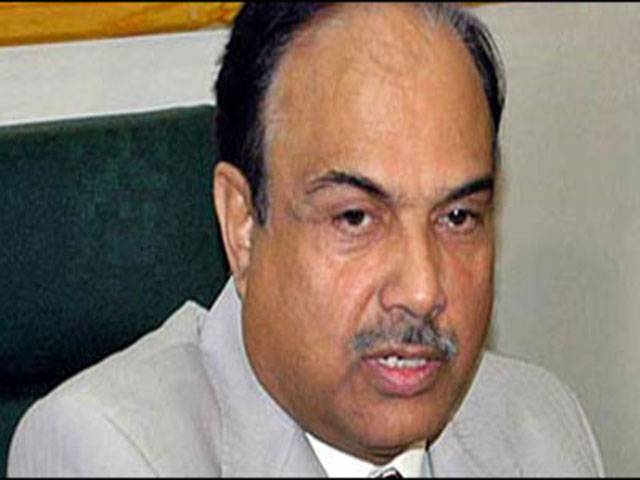ISLAMABAD - The next general elections would not be affected even if the existing electoral constituencies are not delimitated while politically driven interests of the federal and provincial governments are to be held responsible for ignoring key electoral issues like population census, local bodies polls and delimitation of constituencies, a former Election Commission boss said.
“I don’t think the non-delimitation of electoral constituencies would have any significant impact on the electoral process. The constituencies delimitation should have been carried out but it’s not going to adversely affect the polls process even if not done,” former secretary Election Commission of Pakistan Kanwar Dilshad said.
He spoke to this newspaper on Saturday to share views on a number of electoral issues involving the ECP’s preparedness for the general elections, delimitation of constituencies, population census, local bodies elections, usage of Electronic Voting Machines (EVMs) and new electoral rolls.
“The delimitation process cannot be carried out without population census. It was the duty of the federal government to conduct it. The ECP is not to be blamed in this regard. The Commission has no role in carrying out the census. The politicians have their vested interests coupled with ‘broader’ political motives which have kept the census process away from being carried out,” he said adding that the ECP had required data and relevant information to supervise the general polls in the existing electoral constituencies.
“The electoral rolls are ready. The voters data is there. In my opinion, there wouldn’t be any major difference if the general polls are held on the existing constituencies.”
The provincial governments, according to the former secretary, are to be blamed straightway for the non-conduct of local bodies elections in the provinces. “It was the responsibility of the provincial governments to make arrangements for the introduction of Local Government Act by means of legislations in the respective provincial assemblies but they have shown criminal apathy. This has deprived the common man of having its representation at the grass root level besides preventing the democratic process from trickling down to the scratch.”
The electoral expert shared his reservations on the proposed introduction of EVMs in the general elections saying that it took over two-and-half decades for the neighbouring India to successfully launch this project. “It took India more than 25 years to finally get some results from the EVMs in the respective polls. How can we expect getting the desired results in some months? That doesn’t make sense. Even today, questions keep arising regarding the usage of EVMs in India.”
Referring to the demands from certain political circles as well as the ECP’s reiteration regarding the introduction of the Electronic Voting Machines in the next general elections, Dilshad said, “Some politicians who think that EVMs would fully modernise the electoral process are naïve enough not to understand the technicalities involve to this effect. Things cannot be done overnight. As I said, it took India more than 25 years to get desired results from the Electronic Voting Machines so we better not expect the same to happen here in a few months.”
The ex-ECP boss did not see any significant chances of foul play in the electoral process in future. “In my opinion, any chances of rigging, bogus voting or tampering with the votes in any way during polls have been reduced to minimum. The voters data is centrally computerised and the electoral rolls carrying over 84 million voters names are prepared on scientific basis with the centralisation of data. I can’t see any room of foul play in the elections in future.”
Commenting on the preparedness of the Election Commission for the conduct of general polls, Dilshad said, the Commission had resources and related expertise to hold general elections on a 90-day notice. “The Constitution of Pakistan empowers the ECP to exercise its control for the conduct of next general elections within 90 days. The Article 220 obligates the interim provincial and federal governments to assist the ECP in the exercise of its authority for this purpose,” he said.
The Article 220 says, “It shall be the duty of all executive authorities in the federation and in the provinces to assist the commissioner and the Election Commission in the discharge of his or their functions.”
“This article gets particularly applicable in the eve of the general polls when the parliamentary assemblies get dissolved,” the former secretary commented.
Saturday, April 20, 2024
Constituencies’ non-delimitation not to affect general polls: Ex-ECP boss

22 suspects arrested
April 20, 2024
RCCI chief for promoting law-abiding culture
April 20, 2024
Provision of quality education govt’s priority: KP minister
April 20, 2024
A Tense Neighbourhood
April 19, 2024
Dubai Underwater
April 19, 2024
X Debate Continues
April 19, 2024
Hepatitis Challenge
April 18, 2024
IMF Predictions
April 18, 2024
Kite tragedy
April 19, 2024
Discipline dilemma
April 19, 2024
Urgent plea
April 19, 2024
Justice denied
April 18, 2024
AI dilemmas unveiled
April 18, 2024
ePaper - Nawaiwaqt
Advertisement
Nawaiwaqt Group | Copyright © 2024





